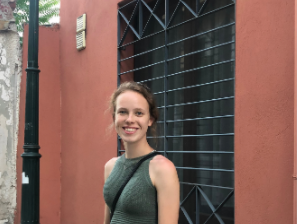Reif: Words do hurt when speech incites violence
November 30, 2018
President Donald Trump does not need to go to Fifth Avenue to get away with violence; he can, and does, do it straight from his podium.
In our country, apparently, power excuses a leader from punishment for violence. Weeks following the horrific terrorist attack on the Tree of Life synagogue in Pittsburgh, the FBI released their latest annual crime report. The United States—supposedly the “greatest country in the world”—experienced a 17 percent increase in hate crimes in 2017. When dissected, that percentage includes a 23 percent increase in religion-based hate crimes and an astounding 37 percent increase in anti-Semitic hate crimes, although a portion of these are reported to be the result of an Israeli teenager’s bomb-threat hoax.
Hate crimes had been on a downward trend until 2014 and spiked in 2016. A similar trend—though much more sudden—was seen post-9/11, resulting in almost 10,000 incidents. The 2001 terrorist attacks resulted in a spike in fear and divisiveness among Americans, primarily toward people of color and Middle Eastern descent. As a result, the lives of these fellow humans are indisputably worsened.
So, the question remains, what accounts for our current increase?
We can identify an event in 2016 as a potential cause for escalation in hate crimes: the election of Trump as President of the United States.
By Nov. 8, 2016, Americans already had a clear picture of Trump’s ideals. He had spouted xenophobic, racist, sexist and other, unsubstantiated, comments along the campaign trail. Specifically notable were his comments in person and on Twitter, his apparent preferred means of communication, encouraging his supporters to use violence as a means to an end. Starting in Iowa in January 2016, Trump blatantly told rally-attendees to “knock the crap out of” counter-protesters, promising them he would cover any legal fees. Two months later in Michigan, he asked his supporters to try not to hurt protesters, but vowed to defend them in court if they did inflict injuries. These are just a couple examples of Trump flagrantly promoting the use of violence against other humans, particularly his political opponents.
The precarious balance of free speech versus public safety tends to tip in favor of free speech, which has only augmented an era with a greater number hate crimes. The 1969 landmark Supreme Court case Brandenburg v. Ohio limits free speech when it incites or proves likely to incite a crime. The Justices’ wording of this decision protects speech that prompts violent acts, declaring it not punishable as a crime. Through this loophole, Trump and his supporters are able to encourage violence without repercussions.
All of this behavior is supplemented by Trump’s consistent failure to condemn hate crimes. In August of last year, white supremacists marched through the streets of Charlottesville, Virginia chanting “Jews will not replace us” and “Sieg heil”, protesting the removal of Confederate monuments. The “Unite the Right” rally turned fatal when 32-year-old counter-protester Heather Heyer was killed by one of the white supremacists. Traditionally, the president, as head of state, has addressed and comforted the nation during times of mourning such as this.
Instead, Trump took to criticizing errors on “both sides,” referring to the white supremacists and counter-protesters. Over a year later, in late 2018, Trump struggled again to denounce the actions of white nationalists like the Proud Boys, a “club” of far-right men who promote political violence.
Instead of trying to delegitimize the ongoing Special Counsel investigation, a better use of Acting U.S. Attorney General Matthew Whitaker’s time might be to encourage Trump to denounce the actions of white nationalism. As long as speech that incites violence is difficult to pursue legally, white nationalists, racists and Trump will be emboldened in their rhetoric and actions.
We must remember an increase in hate crimes inherently affects all American communities, including ours. We, as members of the Case Western Reserve University community, are a beautiful patchwork of experiences, colors, religions, identities and beliefs. We are Jews, Muslims, Christians, Buddhists, atheists. We are immigrants and refugees, we are Latinx, African-American, Asian. We are him, her, them.
It is imperative that we celebrate our differences and denounce the “ambiguous” propaganda emanating from the man in the White House and the violence it instigates.
Jordan Reif is a first-year student studying political science on the pre-med track. She likes to spend her time reading, saving the bees or innovating new ideas for her start up “Ned talks”—a discussion forum for those who are just not quite good enough to make it to TED.


